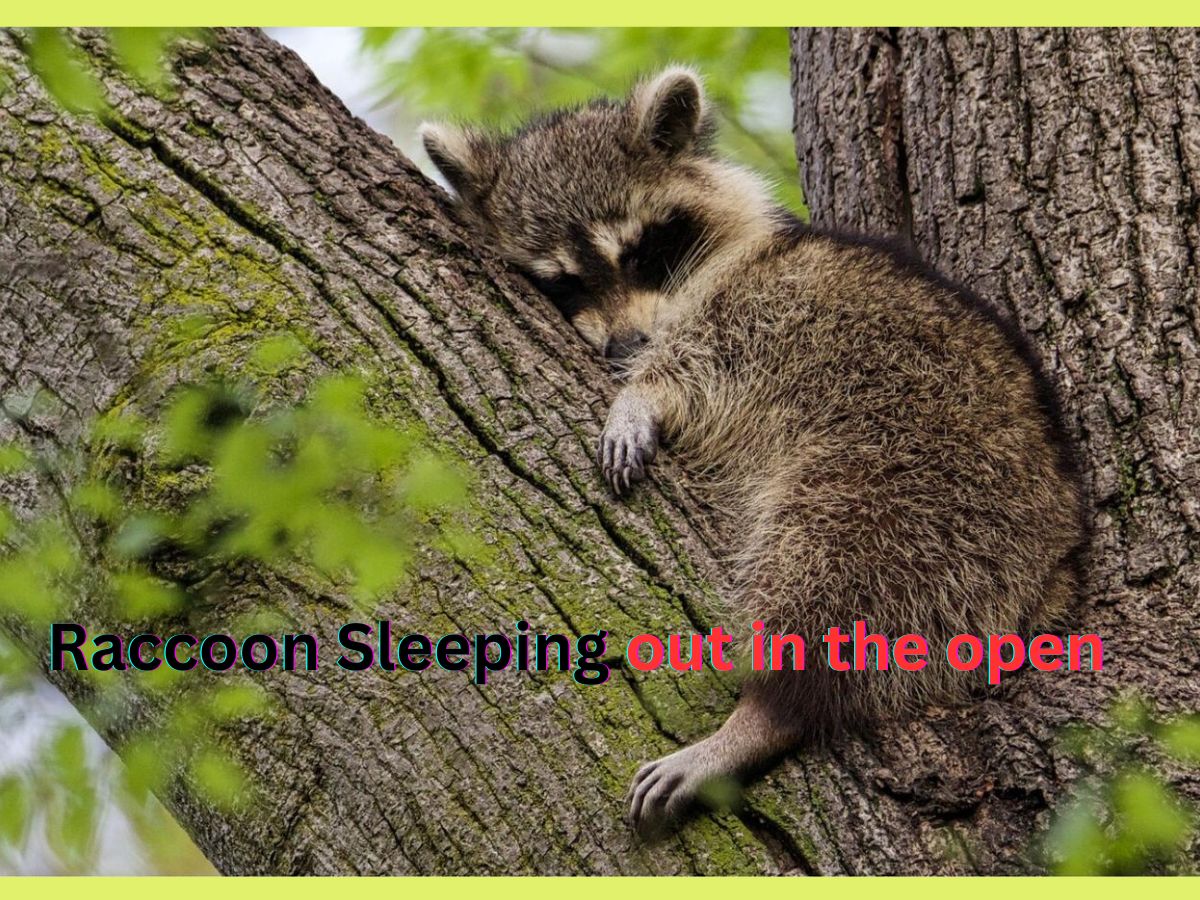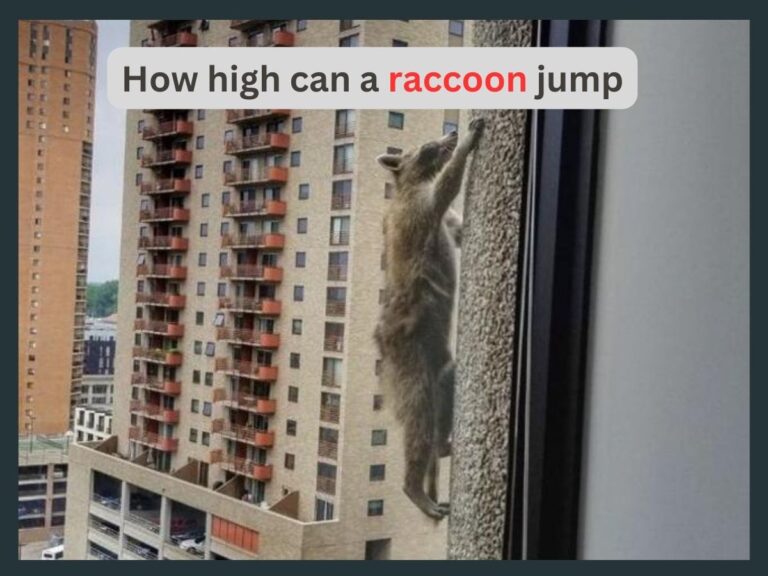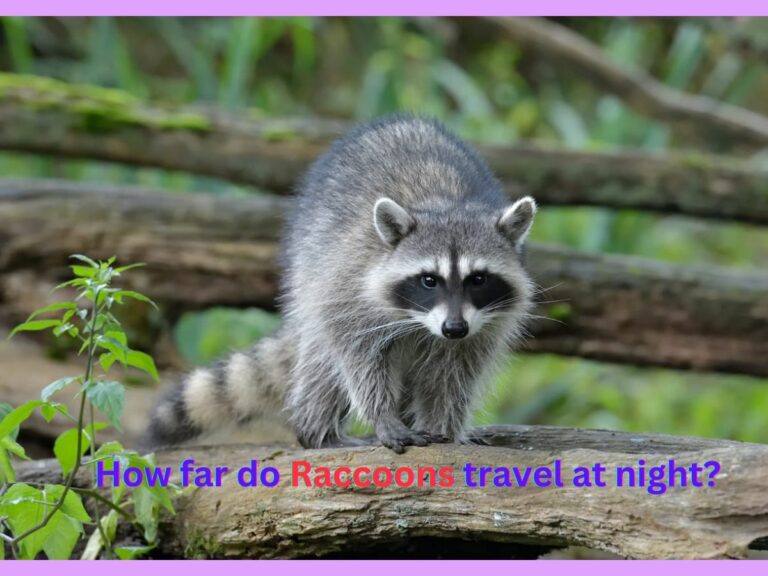Raccoon Sleeping Out in the Open- Surprising Facts!
Raccoons are fascinating and curious creatures native to North America. These nocturnal mammals spend their days in nests and come from their burrows at night. Have you ever come across a raccoon peacefully sleeping out in the open?
It’s indeed an uncommon sight that can leave us both puzzled and intrigued. Raccoons are known for their secretive nature, often avoiding human contact. However, there are occasions when they emerge from their usual routine and take a nap in the most unexpected places, such as a park bench or even a backyard. While it’s not a common occurrence, it can happen for various reasons.
In this blog post, I’ll explore why raccoons sleep in the open. Let’s read it and find out the reasons behind this unusual behavior.
Where do raccoons live during the day?
Raccoons are highly adaptable creatures capable of thriving in a range of environments, from arid landscapes and wetlands to wilderness areas and urban settings. To better understand why raccoons sleep outdoors, it’s essential to gain some insight into their living and sleeping habits.
- The nest of raccoons is called a “den”.
Raccoons live in places as described below:
1. Wild nest places:
Wild areas are the natural nest places of raccoons. They’re good at making homes in wild places like forests, wetlands, and fields. They might live in tree holes or burrows in the ground. In the wild, they find food like bugs, fruits, and small animals to eat. They’re pretty good at living in different kinds of places like
- Hollow trees,
- Burrows,
- Abandoned nests birds
- Rock crevices.
Raccoons are amazing creatures and can adjust to different places to live. They make their nests with less effort. They collect some debris, grasses, and hay to make their nests comfort.
2. Man-made structures:
Similarly, raccoons can live in man-made structures like houses, barns, or sheds. In truth, they are well-adjusted to urban and suburban settings. They are good at finding shelter and sometimes make their homes in these human-made structures. Raccoons are pretty adaptable and can live in different urban places like
- Chimneys,
- Attics,
- Abandoned buildings,
- Sheds,
- Garages
- Porches or decks
- and even chickens.
Basically, they prefer to live in a place that provides them with good shelter and good availability of food.
Raccoon sleeping in the out: Basic reasons!
Typically, during the daytime, raccoons find shelter and rest in their dens, while they emerge from their nests or dens at night.
1. If lack of a suitable hiding place:
Raccoons are opportunistic and adaptable animals, so they will use their intelligence to find a safe and relatively hidden spot for sleeping. However, they generally prefer places that offer protection, food, and peace.
- If for some reason, raccoons can’t find a good hiding place, they might sleep in open places like bushes, dense vegetation, and trees branches.
2. If the raccoon is ill or injured:
Raccoons are nocturnal animals, which means they are typically active at night and sleep during the day. However, if a raccoon is ill or injured, its behavior may change.
- Sick or injured raccoons may be more lethargic and less active than healthy raccoons. They may also seek shelter and rest more during the daytime.
In such cases, it’s essential to avoid approaching or disturbing the raccoons sleeping in open areas.The raccoon may be rabid, so you should contact to local wildlife authorities or animal rescue organizations for assistance.
3. If the raccoon is juvenile:
Young raccoons, called juveniles, are not as experienced as adult raccoons. They might struggle to find safe places to sleep. They can also be quite curious and playful compared to adults, and they may choose to sleep in open areas.
- So, if the raccoon is juvenile, it may try to sleep out.
4. If the raccoon is exploring:
Raccoons are very curious and adaptable mammals. If they see something interesting and unfamiliar they try to explore it. For instance, they like shiny things and explore them, even stealing like jewelry.
- Young raccoons are often more curious and playful than grown-up raccoons. So, when they discover something interesting, they take little breaks to rest while they explore. This means they may sleep outdoors for short periods during their adventures.
So, during exploration, the raccoon takes rest periodically. In this scenario, they may sleep out.
5. If the raccoon is unafraid:
Raccoons are smart creatures. Consequently, they can look at their surroundings and decide if they’re safe or not. If they feel secure, they may decide to sleep in an open area like vegetation and tree branches. This is more common in city areas where raccoons are used to seeing people.
- Raccoons feeling secure may be sleeping out in the open areas.
6. If the raccoon is hungry:
Raccoons are animals that are most active at night, and they usually spend their nights searching for food. However, if a raccoon is very hungry, it might keep looking for food even during the daytime. This could result in it sleeping in an open area to stay close to a potential food source.
- So hunger may result in raccoons sleeping in an open area.
👍So, these are some common reasons for raccoon’s sleeping out in open areas instead of dens.
What should you do if you see a raccoon sleeping out in the open?
Luckily, if you see a raccoon sleeping outside where people can see it, here’s what you should do:
- Stay away: Don’t go close to the raccoon. Raccoons can be dangerous if they feel scared or threatened.
- Watch from far: If you want to look at it, do it from a distance. Don’t get too close, and don’t try to touch it.
- Be safe: Make sure you and your pets are safe. Raccoons can have diseases and bugs on them.
- Give it space: Raccoons often sleep during the day. If it seems healthy and not in danger, leave it alone and let it wake up when it’s ready.
- Call for help: If the raccoon looks hurt or sick, call animal control or a wildlife rescue group for advice.
- Don’t leave food out: Raccoons like to eat human food, so make sure your trash cans are closed and don’t leave pet food outside.
👍Remember, raccoons are wild animals, so it’s best to watch them from far away and not bother them.
Do raccoons sleep with open eyes?
No, raccoons do not sleep with their eyes open!
Like most mammals, raccoons close their eyes when they sleep. Raccoons are known to be primarily nocturnal animals, which means they are most active at night and sleep during the day. When they find a safe and comfortable spot to rest, they typically close their eyes and enter a state of deep sleep. Just like humans and many other animals, they need their sleep to rest and recharge. So, you won’t usually find a raccoon sleeping with its eyes open.
Conclusion:
In conclusion, raccoons are nocturnal mammals, so during the daytime, they take a rest in burrows or dens. However, there are instances when they have been seen by sleeping in the out. They may sleep outdoors for several reasons, including the lack of a suitable hiding place, illness or injury, youthful curiosity, exploration, feeling unafraid, and hunger. These factors can occasionally lead them to rest in open areas, despite their typically secretive nature. if you next time come across to raccoon sleeping out, ensure that there may be some authentic reasons.
FAQS:
Yes, raccoons do occasionally sleep in the open. This behavior can occur for several reasons, including a lack of suitable hiding places, illness or injury, youthful curiosity, exploration, feeling unafraid, and hunger.
If you come across a raccoon in your yard during the daytime, there’s no need to panic. They might not be sick or a threat. It could be that they are extending their foraging hours to provide for their young, exploring your garden when dogs are indoors, or simply relocating to a new area.
Raccoons sleep at night in safe and sheltered places like tree hollows, burrows, or dens. They rest with closed eyes, as they are primarily active during the nighttime when they hunt for food and engage in their nocturnal activities.







